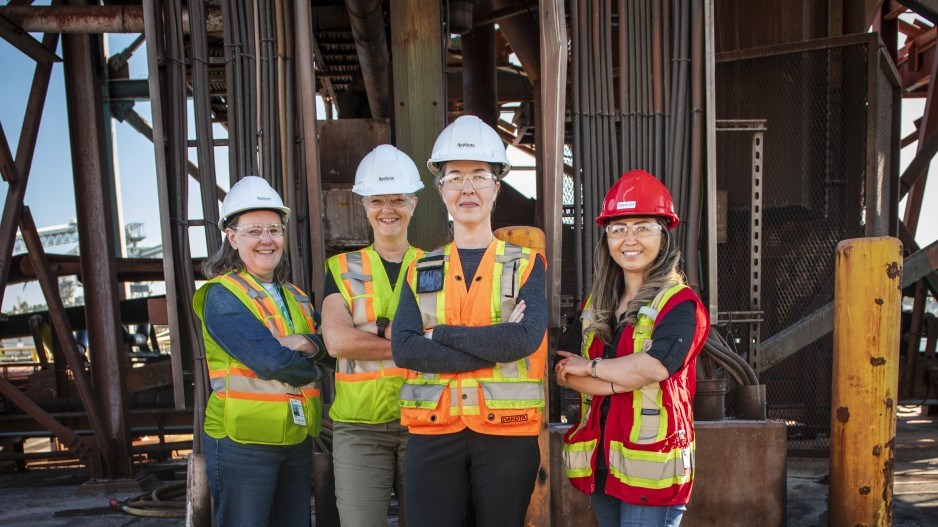Duana Kipling believes there is one central ingredient that is critical to making strong, smart business decisions: diversity.
The president of Neptune Terminals, one of Canada’s largest bulk terminals specializing in the export of Canadian steelmaking coal and potash, says diverse teams lead to better outcomes.
“If everyone on the team has the same background, the chances that we think the same is very high,” she explains. “But if you have people with different backgrounds, they bring out unique and usually better solutions.”
It’s a philosophy she applies at Neptune as well as in the broader waterfront industry. As a founding member of the Waterfront Diversity, Equity and Inclusion (DEI) Council, Kipling is committed to opening the doors to workers who are traditionally underrepresented in the waterfront workforce, such as women, ethnic minorities, Indigenous Peoples and those with differing abilities.
“If we want to get better, we need to attract and retain a more diverse workforce,” she says. “In terms of the Waterfront DEI Council, I think it's important that we all do this together as a collective.”
Kipling defines diversity broadly - age, gender, ethnicity, abilities or even diversity of thought based on past experiences.
“When you have people from a variety of backgrounds, it generally makes the entire team more open to new ideas. I believe every individual should have the opportunity to make a difference.”
The focus on diversity, equity and inclusion is part of a culture change on B.C.’s waterfront as the marine industry works to dispel the long-held stigma of a tough, unrefined workforce.
Kipling, 40, was raised in a small farming community in Saskatchewan, but her views on equity and diversity are shaped by a career in male-dominated industries where she was often the only woman at the table.
While she had strong male role models, she didn’t have any female mentors. That, she says, is something that is changing in the maritime sector.
“This industry has come a long way,” she describes. “I would say that we have seen a much quicker pace of change in the last couple of years.”
The Waterfront DEI Council, which includes representatives from more than 10 of the largest terminal employers and operators in British Columbia, fosters an inclusive and supportive work environment, collects and analyses data and stewards an allyship program.
"We need to make sure to support those coming into the industry, ensuring they are successful. I know that if you take the chance and you're willing to put in the work, you will have mentors here that support you."
Maksim Mihic, Chair of the Waterfront DEI Council and CEO and General Manager of DP World (Canada) Inc., says Kipling's guidance is making a difference today and will continue to do so long into the future.
"Duana represents the next generation of leaders," he says. "Having her voice at the table is helping our sector modernize and grow."
Kipling is proud of the advancements made within the waterfront workforce but says there is still much work to do before anyone can declare it a success.
One of the most significant challenges is attracting newcomers to the range of opportunities that are available. They are family-supporting jobs, in waterfront communities along B.C.’s coast, and yet many don’t know they exist.
“We need to convey to people that their perceptions of what these jobs might have been 20 years ago are very different now and will continue to evolve,” Kipling explains. “The perception is that these are dirty, hard, industrial jobs. But as technology changes, there are many jobs that are actually more like playing a computer game with a joystick in your hand. It requires precision and detail.”
Although all members of the Waterfront DEI Council are extremely busy executives, Kipling says she will always find time to help create a more fair, diverse and equitable future.
“We will succeed when the diversity of our workplaces reflects the diversity of our communities,” she says. “I will always find time to help carve a path for the next generation.”




